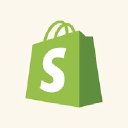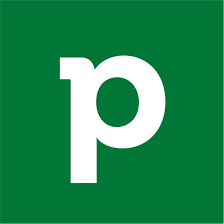The Best Point of Sale Systems for 2025


The best point-of-sale (POS) systems are some of the most valuable tools in a retail or restaurant company’s arsenal. Combining hardware and software, these solutions centralize sales, payment processing, and customer relationship management, to help businesses thrive and grow.
More than just a system for processing payments and transactions, modern POS tools also provide companies with valuable insights and automation capabilities. The right tools can help you build customer loyalty, track inventory, and even manage employees.
As the retail landscape continues to evolve, the POS environment is transforming too, introducing new functionality all the time. Companies need to rapidly update and evolve if they want to stay one step ahead of the competition. Almost a third of restaurant operators say they’re prioritizing implementing a new POS in the years to come.
Whether you’re implementing a brand-new POS solution, or you’re looking to upgrade your existing technology, we’re here to help. We’ve examined some of the most popular point of sale offerings on the market today, to provide you with a step-by-step guide to the best tools for every use case.
What Are the Best Point of Sale Systems?
Notably, the best POS solution for your business will vary depending on what you want to accomplish with your technology. Some solutions are designed specifically for certain industries, like the food and beverage space. Others have advanced tools for customer relationships and employee management. Here are some of the best tools we’ve found so far.
1. Lightspeed
Best Overall

Lightspeed is a cloud-based POS system and business command center for retailers around the globe. This state-of-the-art technology comes with excellent retail management tools, such as a powerful inventory management solution, and a range of in-depth reports. The technology is easy to deploy with custom onboarding, and simple for employees to learn.
Lightspeed can support both online and in-store sales and supports various customization options. If you need to offer your clients options like layaways, work orders, and custom purchase orders, LIghtspeed can offer it all. The tool has dozens of integrations with leading apps such as Accumula, 5loyalty, and Apaleo.
Key Features
Lightspeed’s POS solution includes:
- Inventory management: Bulk uploading of up to 10,000 SKUs at once, and management for variants, and bundles. There are also built-in product catalogs, low-stock alerts, and options for tracking unit costs, layaways, and special orders.
- Reporting and analytics: There are more than 40 built-in reports and custom report options with easy-to-understand graphs and charts.
- Supplier network: Retailers can rapidly find products from a range of suppliers, submit orders, and track shipments within their POS environment.
- Marketing: To boost sales, Lightspeed includes a built-in loyalty program on some subscription tiers, as well as options for creating VIP customer segments.
- eCommerce: Lightspeed has its own in-built eCommerce solution which syncs directly with your POS data. There are more than 50 themes, order management tools, CRM, and SEO features, as well as shipping options.
Pricing

Lightspeed pricing starts at $99 per month for the lean package, with access to all of the essential features, including integrated payments and one register. The Standard package for $149 per month adds in accounting and eCommerce features, while the $229 Advanced plan features omnichannel loyalty capabilities and advanced reporting.
2. Square
Best for Mobile Payments

Ideal for smaller companies and brands taking mobile payments, Square is an affordable and easy-to-use POS system. The affordable pricing of the tool, and its convenient and intuitive interface makes it great for beginners who don’t want to deal with complex software. The self-installable technology also has specialized tools for different industries.
Square also allows users to build their own free website or store for their business, with access to useful templates and integrated payment processing. Each plan also comes with unlimited sales and product options, suitable for scaling. Square also integrates with a range of online apps and tools via the Square app marketplace. Options include GoDaddy, WooCommerce, and Mailchimp.
Key Features
The Square POS comes with access to:
- Integrated payments: Square has its own payment processing solution for rapid and convenient payments. Processing fees are charged at a low flat rate, and most businesses will qualify for next-day deposits.
- Specialist features: Specialist features are available for professional services and restaurants, such as appointment booking, and table management tools.
- Inventory management: Retailers can track their inventory and orders in real-time, get low-stock alerts, and access barcode printing tools. There are also in-depth reports available.
- eCommerce store: Every POS account with Square includes access to a free online store with an integrated inventory and payment processing system.
- Flexible hardware: Hardware options are available in a range of options, including terminals, and registers specifically designed for businesses on the move.
Pricing

Square has no subscription costs for its core POS services. You only pay for add-on solutions for restaurants, service businesses, and complex retail locations. However, there are payment processing fees for each kind of transaction. Options include 1.75% for in-person transactions, 1.9% or 2.9% for online payments depending on your location, and 2.5% for manual transactions.
3. Toast
Best for Restaurants

Toast is a powerful cloud-based POS designed for the restaurant and food service landscape. There’s a free starter POS system, and easy pay-as-you-go options for hardware, so smaller brands can get started quickly. Additionally, the solution is packed with scalable technology, such as integrated online ordering, delivery management, and marketing tools.
The features of Toast are specially-suited to restaurant managers, with convenient functions like QR code payments and ordering ingredient-level inventories, and employee schedules. There are also front-of-house features for managing team and staff members. Toast integrates directly with accounting and mobile pay tools like DAVO and Rooam. It also has an API program.
Key Features
Toast POS includes access to:
- Front-of-house management: Users can access seat management, table, and course management, as well as check-splitting, and credit-card pre-authorizations for bars.
- Comprehensive reporting: Complete and customizable reports make it easy to track employees, inventory, and purchasing trends with visualizations.
- Workforce management: Powerful tools for timekeeping, employee schedules and payroll, as well as tip-pool management and HR documents for restaurants.
- Online ordering and delivery: You can integrate with third-party delivery platforms, and create full map-based driver dispatch strategies for in-house deliveries.
- Guest engagement: Build brand loyalty with email marketing, gift cards, and loyalty programs, as well as options for saving customer profiles.
Pricing:

Toast’s core POS features are available for free, with access to the cloud-based point of sale, hardware configuration, and various additional add-ons. For extra POS solutions, plans start at $69 per month for custom hardware options. Users can also experiment with the Essentials plan at $165 per month with online ordering, or the Custom enterprise plan.
4. Shopify

Best for Ecommerce

The Shopify POS is a state-of-the-art solution designed for companies who want to sell both offline and online at the same time. The technology comes with access to the comprehensive Shopify store builder, so you can build an engaging online presence for your company. There’s also synced inventory management across multiple locations.
Shopify helps companies to keep all of their customer data located in one place, with easy access to loyalty programs and referral tools. There are multiple hardware options available to enhance your offline stores, as well as a number of payment processing solutions. Shopify also integrates with various tools through the Shopify app store, including Klarna, Mailchimp, and Facebook.
Key Features:
- eCommerce store: Shopify allows users to build comprehensive online stores for processing online and offline orders at the same time. There’s also a Facebook integration.
- Inventory management: POS Pro comes with access to the Stocky smart inventory app for barcode scanning, low-stock alerts, and inventory counts, as well as demand forecasting.
- Customizable terminals: Adjust your hardware to suit your store with access to your most-used apps, discounts, and products on the home screen.
- Unified reporting: Access easy-to-follow reports showcasing analytics across your online and offline stores, for better decision-making.
- Custom staff permissions: Enable different members of staff to access various tools across the Shopify online and offline landscape.
Pricing:

The “Lite” version of the Shopify POS comes as standard with all Shopify pricing plans, which start at $29 per month for the basic service. The Lite tool includes mobile POS, order and product management, customer profiles, and credit card rates starting at 2.4%.
The Shopify POS Pro plan is $89 per month, per location, added on top of your Shopify eCommerce plan. This includes unlimited store staff, smart inventory management, omnichannel selling, in-store analytics, staff roles, and unlimited registers.
5. Revel
Best for High-Volume Retailers

Revel is a powerful cloud-based iPad POS system for both retail businesses and food-service companies. The solution uses both your local network and the cloud to store information, so you can continue to operate even if your store goes offline. The centralized management system is ideal for high-growth companies as it allows them to track multiple locations at once.
This high-volume POS solution has an exceptional level of customizability, with access to various reports and analytics to help generate growth. Additionally, users can access a range of different hardware tools like barcode scanners and scales. Revel has a number of integration partners including Ayden, 7Shifts, and Amaka.
Key Features:
The Revel POS includes access to:
- Specialist food service features: Restaurants can access detailed table mapping and menu-building tools, while grocery teams can access loyalty cards and scale integrations.
- Inventory management: The Revel inventory module automatically synchronizes information across a range of locations, with low-stock alerts and real-time updates.
- Vendor management: Built-in vendor and purchase order management make it easy for companies to track their supply chain and update inventory counts.
- Delivery management: There are various maps-based driver dispatch options and tools for managing a selection of in-house delivery drivers. There’s also a special mobile app.
- Flexible hardware: The Revel POS system can work alongside iPads as well as a range of powerful hardware integrations, to help retailers build the perfect store.
Pricing

Revel’s POS software costs start with a fee of $99 per terminal, for access to point of sale tools, inventory management, employee management, CRM, and reporting. There’s a transparent flat fee for all payment processing, which is delivered to your company via a quote. There’s also an onboarding fee for companies who need help with set-up, starting at $674.
6. QuickBooks
Best for Accounting Integration

QuickBooks offers one of the best Point of Sale systems for companies who want to keep a close eye on their taxes and accounting. The technology integrates seamlessly with the QuickBooks bookkeeping and accounting tools, helping brands to build more effective inventory and sales reports. The solution supports all payment types and allows users to create customer profiles for repeat sales.
There’s an eCommerce integration so you can synchronize and manage data both online and offline at the same time. Plus, automatic inventory updates and tracking help to prevent stock-outs, with real-time alerts and notifications. QuickBooks integrates with a range of tools, including Etsy, PayPal, Square, and Amazon Business Purchases.
Key Features
QuickBooks POS comes with access to:
- Various payment options: Users can accept everything from mobile payments to online transactions, cards, and payments from digital wallets.
- Customer data tracking: Creating profiles for each customer will allow you to distribute more personalized offers to each customer. You can also create loyalty programs.
- eCommerce integration: Integrations with eCommerce stores allow you to track your inventory and sales across multiple environments at the same time.
- Inventory management: Each sale automatically updates your inventory count with real-time insights and reports. You can also get low-stock alerts sent to your email.
- Integration with QuickBooks: The service integrates directly with QuickBooks accounting tools for details sales reports, forecasting, and documents for tax and VAT management.
Pricing

There’s a free trial available for QuickBooks where you can test out some of the functionality. After that, users have a range of three plans to choose from, each sold on a one-time purchase base. You’ll pay $960 for the basic technology with POS hardware sold separately. You’ll also need to purchase a QuickBooks accounting subscription if you want to connect your bookkeeping tools.
8. TouchBistro
Best for F&B Businesses

Similar to Toast, TouchBistro is a specialist iPad-based point of sale system intended for food and beverages companies. The solution is extremely easy to use, and compatible with a range of payment processors, so companies can ensure they’re getting the lowest transaction fees available. The technology includes unique mobile reporting components and has a range of flexible hardware options available.
TouchBistro makes it easy to get up and running with powerful knowledgebase articles, training videos, and in-person training from specialists. The solution comes with comprehensive tools specific to the restaurant industry, including table management, reservations, and tableside ordering. TouchBistro integrates with various tools including Xero, QuickBooks, and Sage.
Features
The TouchBistro POS solution includes access to:
- Extensive restaurant management: There’s table management options, reservation tools, tableside ordering, bill splitting, and multiple menu management solutions available.
- Marketing and loyalty: An in-built marketing platform supports automated email campaigns, and loyalty programs, with referral rewards and discount codes.
- Online ordering: Users can shop online, and companies can use built-in delivery management tools to expand their area of operation.
- Flexible payment processing: You won’t have to pay any extra fees to add your own payment processing selection into your technology.
- Hardware customization: TouchBistro operates on iPads which can be configured to act as KDS screens, POS terminals, and self-service kiosks.
Pricing:

TouchBistro pricing starts at $69 per month for access to the full POS system. The plan includes menu management, floor plan and table management, tableside ordering, staff management, and reporting and analytics. Add-on products like online ordering are available for an extra fee. Online ordering costs $50 per month, while loyalty and marketing tools start at $99 per month. Gift cards cost an extra $25 per month.
The Best Free Point of Sales Systems
For companies with a limited budget, there are free POS solutions available. For instance, Square offers a free package available to customers who want to get up and running fast. However, these tools can lack some crucial features.
Even the best free point of sale systems will only include basic tools for reporting, inventory management, and employee management. Most will require you to upgrade to a premium plan if you want to access advanced functionality, like eCommerce synchronization, or specialist tools for restaurant and service businesses.
In most cases, a free POS solution will be the ideal option for companies testing out the initial functionality of a service they’re interested in. You can use a free trial or demo to get a taste of the software before committing to a premium tier.
Buying Guide – Best Point of Sales Systems Buyer’s Guide
The best point of sale systems for your company will depend on a range of factors, including how much you’re willing to pay, and what kind of unique functionality you need. Point of Sale systems can often include everything from CRM solutions to employee management, to help you strengthen both customer and employee experiences.
They also come with a range of tools for processing payments, tracking your inventory, and keeping on top of increasing sales numbers.
What are the Best Point of Sales Systems?
The best Point of Sales systems are essentially comprehensive tools which allow you to manage all aspects of running a successful business in one environment.
They support payment processing both online and offline, with a range of transaction features. However, they also give you in-depth insights into your company’s growth and sales potential, with meaningful reports and analytics.
A good point-of-sale system should give you everything you need to operate a successful and cost-effective company, with tools to manage inventory and employees, monitor critical sales metrics, and experiment with new strategies. Some solutions will allow you to integrate your POS with loyalty programs, accounting systems, eCommerce platforms, and email marketing tools.
What to Look for In Best Point of Sales Systems?
While the needs each company has when choosing a point of sale system will vary, there are some critical features worth looking for in every tool. Ultimately, your point-of-sale solution should allow you to track and manage transactions, monitor your employees, and build lucrative relationships with your target audience. Some of the key features to look for include:
- Flexible payment processing: Your POS system should be able to process a range of offline and online payments. The best solutions can manage mobile payments, online orders, gift cards, and discounts while integrating with multiple payment processors.
- eCommerce capabilities: Since most companies prefer to sell online and offline at the same time, it helps to have a POS solution that can synchronize sales data and inventory information across all digital and traditional channels.
- Inventory management: Your POS solution should make it easy to track your inventory, update your supplies with new orders, and avoid stock-outs. Look for a solution with an included notification system for low-stock alerts.
- Customer relationship management: Customer relationship management tools make it easy to develop stronger relationships with clients through personalized profiles. You could also access loyalty programs and referral rewards with your POS.
- Employee management: Ensure you can keep track of your employees, their schedules, and their payroll processing needs within your POS solution. This will ensure you can use your professional resources effectively.
Point of Sales System FAQ
Which Point of Sale System is the best?
The best point of sale system for your company will depend on the type of business you run, and the key functionalities you’ll need to operate your organization. Lightspeed is the best solution overall in our opinion, thanks to its excellent ease of use and customization features. However, Shopify might be best for eCommerce-focused companies, while Toast is ideal for restaurants.
What is the difference between a POS and a Terminal?
A terminal is one of the tools you might use to operate your point of sale system, but the two solutions aren’t exactly the same. A POS is a combination of hardware and software used by businesses to track inventory, process payments, and examine business data. A terminal is the hardware used by companies to manage transactions.
Which Point of Sale System is the cheapest?
The cheapest point of sale systems tends to be the products that allow you to access basic core features for free. For instance, Square offers access to a range of POS tools and eCommerce website-building solutions without a subscription. Toast also allows you to access various tools for free, but you will still need to pay payment processing fees, and consider the price of hardware.
Choosing The Best Point of Sales Systems
When choosing the best point of sale systems, it’s important to consider the needs of your specific business carefully. Look for something with the unique features most relevant to your business, and make sure you prioritize management tools for inventory, employees, and customers.
At the same time, think about the flexibility of the technology. How easy is it to add new features, and experiment with different payment processors?
Some of the best point of sale systems for different use cases include:
- Lightspeed: Best overall with fantastic ease of use
- Square: Best for mobile payments, with free core services
- Toast: Best for restaurants, with specialist food-service components
- Shopify: Best for eCommerce companies focused on omnichannel selling
- Revel: Best for high-volume retailers with excellent data synchronization
Which point of sale system is your business using? Do you think we’ve missed an important option from our list? Share your experiences with us in the comment section below.
Related Products






